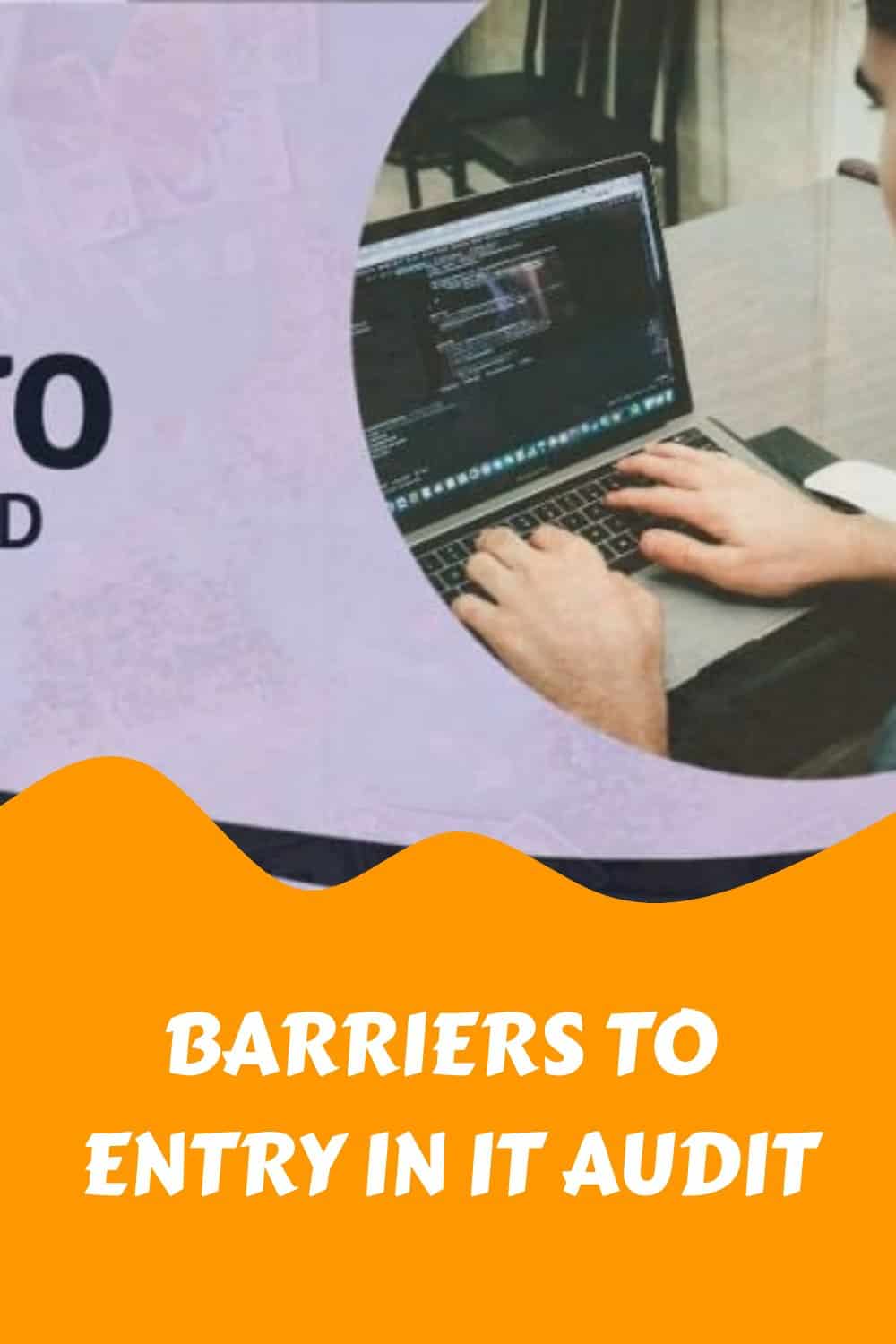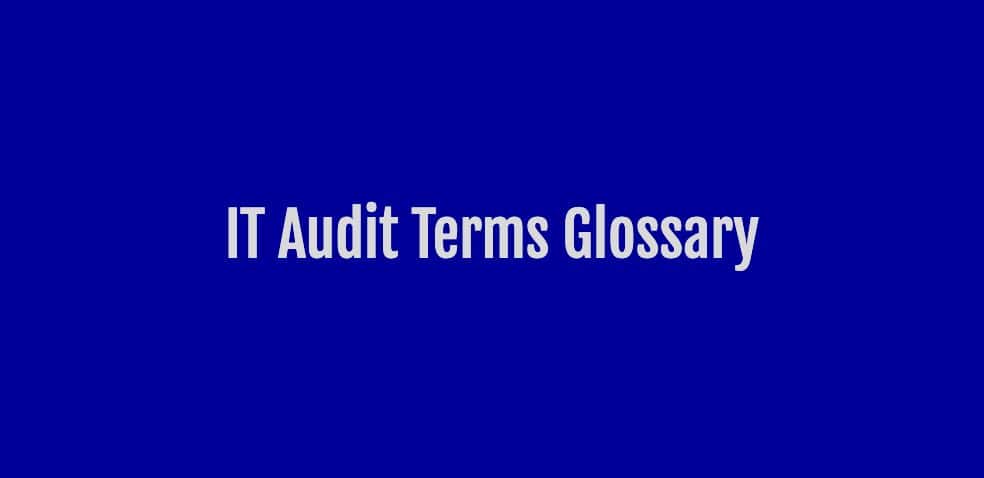In the world of IT audits, there are many misconceptions and myths surrounding the barriers to entry. These misconceptions often discourage individuals from pursuing a career in this field. However, it is important to separate fact from fiction and understand the true nature of the qualifications and requirements for entering the world of IT audit.
Understanding the Concept of Barriers to Entry in IT Audit
Before we delve into debunking the myths surrounding the barriers to entry in IT audit, it is crucial to have a clear understanding of what IT audit entails. In simple terms, IT audit refers to the examination and evaluation of an organization’s information systems and controls to determine their effectiveness and compliance with applicable laws and regulations.
Defining IT Audit
IT audit encompasses a wide range of activities such as assessing the reliability and security of data, ensuring compliance with industry standards, and identifying potential risks and vulnerabilities in the organization’s IT infrastructure. It requires a unique skill set that combines technical expertise with a deep understanding of business processes and risk management.
When conducting an IT audit, professionals analyze the organization’s IT systems, including hardware, software, networks, and databases. They assess the effectiveness of security measures, such as firewalls and encryption, to protect sensitive data from unauthorized access. Additionally, IT auditors evaluate the organization’s IT policies and procedures to ensure they align with industry best practices and regulatory requirements.
Furthermore, IT auditors conduct interviews with key stakeholders, such as IT managers and system administrators, to gain insights into the organization’s IT infrastructure and identify potential areas of improvement. They also review documentation, such as system configuration files and user manuals, to understand how the IT systems are designed and implemented.
The Misconceptions About Barriers to Entry
One of the most common misconceptions about the barriers to entry in IT audit is that it requires extensive education and certifications that are out of reach for most individuals. While having a formal education and certifications can certainly be beneficial, they are not the sole determining factors for entering this field.
Contrary to popular belief, a degree in computer science or a related field is not always a mandatory requirement for pursuing a career in IT audit. Many successful IT auditors come from diverse educational backgrounds, including business, engineering, and even humanities. What truly matters is a combination of skills, knowledge, and experience that can be developed through various pathways.
For example, individuals with a background in business may possess strong analytical and problem-solving skills, which are essential in identifying risks and controls within an organization’s IT systems. On the other hand, those with engineering backgrounds may have a deep understanding of technical concepts and can effectively assess the reliability and security of IT infrastructure.
Moreover, gaining practical experience through internships, entry-level positions, or volunteering opportunities can significantly enhance one’s chances of entering the IT audit field. These experiences provide hands-on exposure to real-world IT environments and allow individuals to develop skills in areas such as data analysis, risk assessment, and report writing.
Additionally, pursuing professional certifications, such as Certified Information Systems Auditor (CISA) or Certified Internal Auditor (CIA),can demonstrate a commitment to professional development and validate one’s knowledge and skills in IT audit. These certifications are widely recognized in the industry and can open doors to career advancement opportunities.
In conclusion, while there may be certain misconceptions surrounding the barriers to entry in IT audit, it is important to recognize that there are multiple pathways to enter this field. By combining the right mix of skills, knowledge, and experience, individuals from diverse backgrounds can embark on a successful career in IT audit and contribute to the effective management of information systems within organizations.
The Reality of IT Audit Qualifications
When it comes to pursuing a career in IT audit, there are various factors to consider. While a formal education may not be a strict prerequisite, it can provide a solid foundation for success in this field. A degree in a relevant field, such as computer science or information systems, can help individuals develop a holistic understanding of information systems, risk management, and business processes. Through coursework and hands-on projects, students can gain valuable knowledge and skills that can be applied in real-world IT audit scenarios.
However, it is important to note that education alone is not enough to excel in IT audit. Relevant work experience and practical skills are equally, if not more, critical in this profession. Employers often look for candidates who have a combination of theoretical knowledge and practical expertise. This can be achieved through internships, co-op programs, or entry-level positions that provide opportunities to work alongside experienced IT auditors and gain firsthand experience in conducting audits, assessing risks, and implementing controls.
The Importance of Relevant Education
While a formal education can provide a strong foundation, it is important to continuously update and expand one’s knowledge in the ever-evolving field of IT audit. Technology is constantly changing, and new threats and vulnerabilities emerge regularly. Therefore, IT auditors must stay up-to-date with the latest trends, best practices, and regulatory requirements.
Continuing education programs, professional development courses, and industry conferences can help IT auditors stay current and enhance their skills. These opportunities allow professionals to learn from industry experts, network with peers, and gain insights into emerging technologies and audit methodologies. By actively seeking out educational opportunities, IT auditors can ensure they are equipped with the knowledge and expertise needed to effectively assess and mitigate risks in today’s dynamic IT landscape.
The Role of Certifications in IT Audit
Certifications play a significant role in the IT audit profession, as they can enhance an individual’s credibility and marketability. The Certified Information Systems Auditor (CISA) certification, offered by ISACA, is highly regarded in the industry. It validates an individual’s knowledge and expertise in auditing, controlling, and securing information systems. Similarly, the Certified Internal Auditor (CIA) certification, offered by the Institute of Internal Auditors (IIA),demonstrates proficiency in internal auditing principles and practices.
While certifications can certainly boost a professional’s career, they are not insurmountable barriers to entry. In fact, these certifications can be pursued while gaining practical experience in the field. Many IT auditors start their careers in entry-level positions and work towards obtaining certifications as they gain hands-on experience and develop a deeper understanding of IT audit processes and methodologies.
It is worth noting that certifications are not always necessary for entry-level positions in IT audit. Employers often value practical experience and a demonstrated ability to apply knowledge in real-world scenarios. Therefore, individuals who are interested in pursuing a career in IT audit should focus on gaining practical experience, developing technical skills, and continuously expanding their knowledge through both formal education and self-study.
The Myth of Extensive Experience Requirement
When it comes to entry-level positions in IT audit, there is a prevailing myth that extensive experience is a prerequisite for getting a foot in the door. However, this notion couldn’t be further from the truth. While experience is undoubtedly valuable, the field of IT audit offers ample opportunities for individuals who are just starting their careers.
Entry-level positions in IT audit provide individuals with the chance to gain practical experience and develop the necessary skills to advance in their careers. These positions serve as a stepping stone for aspiring IT auditors, allowing them to learn the ropes and familiarize themselves with the intricacies of the field.
Moreover, companies understand the importance of nurturing talent and investing in the future of the profession. They recognize that not everyone can come in with extensive experience, and they are willing to provide the necessary training and support to help individuals grow and thrive in the field of IT audit.
The Value of Transferable Skills
One of the key factors that debunk the myth of extensive experience requirement is the value placed on transferable skills in the world of IT audit. While previous experience in the field can certainly be beneficial, individuals who possess strong critical thinking, problem-solving, and analytical skills can excel in IT audit, regardless of their background.
In fact, many successful IT auditors have transitioned into the field from other professions such as accounting, finance, or even law enforcement. These individuals leverage their existing skills and knowledge to succeed in the dynamic and ever-evolving world of IT audit.
For example, individuals with a background in accounting bring a deep understanding of financial processes and controls, which can be invaluable when assessing the effectiveness of an organization’s internal controls. Similarly, those with a background in law enforcement may possess strong investigative skills that can be applied to identifying and mitigating potential cybersecurity threats.
By recognizing the value of transferable skills, the field of IT audit opens its doors to individuals from diverse backgrounds, fostering a rich and multidisciplinary environment. This not only enhances the profession but also brings fresh perspectives and innovative approaches to addressing the complex challenges faced by organizations in today’s digital landscape.
The Misunderstood Complexity of IT Audit
The Nature of IT Audit Work
IT audit is often perceived as an esoteric and highly technical field that requires a deep understanding of complex systems and programming languages. While technical knowledge is undoubtedly valuable, it is essential to recognize that IT audit is a multidisciplinary field that requires a blend of technical expertise and business acumen.
IT auditors are not solely focused on uncovering IT vulnerabilities; they also evaluate the effectiveness of IT controls, assess compliance with regulatory requirements, and analyze the overall risk posture of the organization. This comprehensive approach ensures that the organization’s IT infrastructure is secure, efficient, and aligned with business objectives.
Moreover, IT auditors play a critical role in bridging the gap between IT and business functions. They act as translators, helping business stakeholders understand the technical implications of their decisions and providing IT teams with insights into the organization’s strategic goals. This requires strong communication skills and the ability to navigate complex organizational structures.
The Learning Curve in IT Audit
It is also important to acknowledge that IT audit, like any other profession, involves a learning curve. Individuals entering this field should not be discouraged by the initial complexity but should approach it as an opportunity for growth and development.
With the right mentorship, training, and on-the-job experience, individuals can quickly grasp the intricacies of IT audit and make meaningful contributions to their organizations. Mentorship programs can provide guidance and support, helping new auditors navigate the complexities of the field and gain practical knowledge from experienced professionals.
Training programs, both formal and informal, are essential for IT auditors to stay updated with the latest technologies, industry best practices, and regulatory requirements. Continuous learning is crucial in a field that evolves rapidly, and IT auditors must be proactive in acquiring new skills and knowledge.
On-the-job experience is invaluable in IT audit. As auditors engage with different organizations and industries, they encounter unique challenges and gain insights that contribute to their professional growth. Each audit engagement presents an opportunity to learn, adapt, and refine audit methodologies, ultimately enhancing the effectiveness and efficiency of their work.
In conclusion, IT audit is a multifaceted field that goes beyond technical expertise. It requires a blend of technical knowledge, business acumen, and strong communication skills. While the initial complexity may seem daunting, with the right support and continuous learning, individuals can thrive in this profession and make significant contributions to their organizations.
The Overstated Cost of Entry into IT Audit
When it comes to pursuing a career in IT audit, there is a common misconception that it requires a significant financial investment. While it is true that obtaining relevant certifications and pursuing formal education may come with a financial cost, it is important to note that there are various affordable options available for aspiring IT auditors.
One of the ways in which individuals can minimize the financial burden of preparing for a career in IT audit is by taking advantage of the training and development programs offered by many organizations. These programs often provide scholarships and sponsorships to help individuals cover the costs of certifications and educational courses. By participating in these programs, aspiring IT auditors can gain the necessary knowledge and skills without having to bear the full financial burden themselves.
The Financial Investment for IT Audit Preparation
When considering the financial investment required for IT audit preparation, it is important to take a holistic view of the costs involved. While there may be upfront expenses for certifications and educational courses, these investments can pay off in the long run by opening up lucrative career opportunities.
Furthermore, it is worth noting that not all certifications and educational programs come with exorbitant price tags. There are many affordable options available, including online courses and self-study materials, which can significantly reduce the financial burden of IT audit preparation. By exploring these cost-effective alternatives, individuals can pursue their career goals without breaking the bank.
The Return on Investment in IT Audit Careers
While the financial investment in IT audit preparation may seem daunting at first, it is essential to consider the long-term benefits and return on investment in IT audit careers. The demand for skilled IT auditors is rapidly increasing, driven by the evolving technology landscape and the growing importance of cybersecurity and risk management.
Individuals who invest in their education, certifications, and practical experience can expect to reap the rewards of their efforts. IT auditors are highly sought after in various industries, including finance, healthcare, and technology. With the right qualifications and experience, IT auditors can secure rewarding career opportunities and enjoy competitive salaries.
Moreover, the skills acquired in IT audit are transferable and can open doors to other related fields. IT auditors often develop a strong understanding of cybersecurity, risk management, and compliance, which are highly valued in today’s digital world. This versatility further enhances the return on investment in IT audit careers.
In conclusion, debunking the myths surrounding the barriers to entry in IT audit is essential to encourage more individuals to consider this exciting and rewarding profession. By understanding the true nature of qualifications and requirements in IT audit, aspiring professionals can embark on a journey to build a successful career in this dynamic field. The financial investment in IT audit preparation should not be overstated, as there are affordable options available, and the long-term return on investment in IT audit careers can be highly rewarding.









